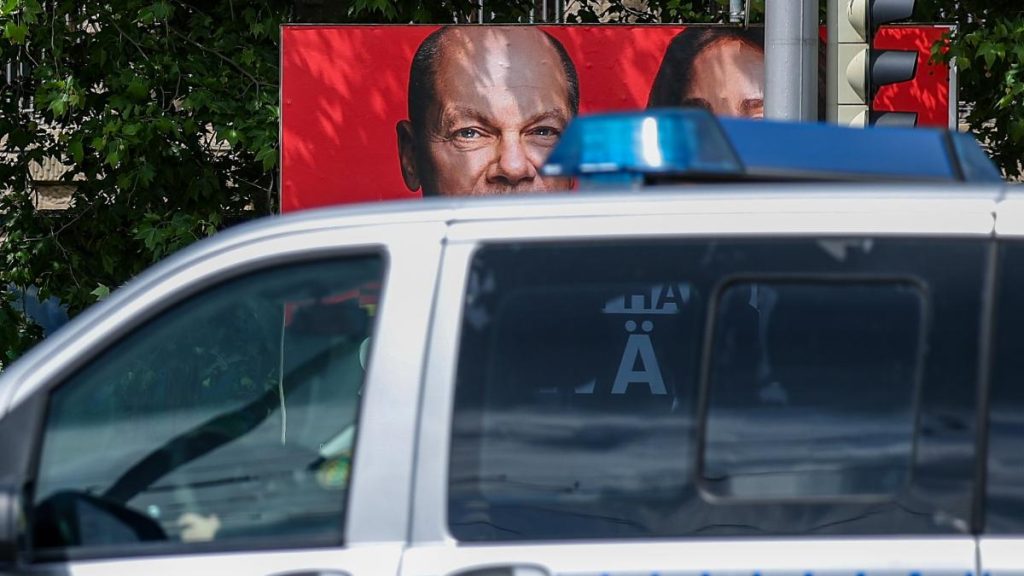In the wake of increasing threats and physical attacks against politicians in Germany, the Interior Ministers of the federal government and states are considering tightening criminal laws to address the issue. Attacks on politicians such as Matthias Ecke and Franziska Giffey, both from the Social Democratic Party (SPD), have prompted discussions on the need for stronger measures. Chancellor Olaf Scholz has joined the debate, emphasizing the importance of participating in the upcoming European elections as a way to combat violence against democracy. He encourages citizens to vote and highlights the significance of safeguarding a united Europe.
SPD leader Lars Klingbeil has called for enhanced security measures at campaign events in response to recent attacks, urging Innenministers at both federal and state levels to ensure adequate protection. He stresses the necessity of increased police presence at events, as well as a firm stance from prosecutors and judges against perpetrators. Klingbeil also advocates for mechanisms that enable local politicians to report incidents, ensuring that threats and intimidation are taken seriously. The surge in attacks on both volunteers and professional politicians underscores the urgency of enforcing strict consequences for violent offenders.
Thuringia’s Minister President Bodo Ramelow proposes bipartisan poster campaigns promoting democracy and denouncing violence, emphasizing the need for unity in the face of threats to democratic values. Ramelow condemns the attacks as attempts to intimidate those advocating for democracy and advocates for a joint effort to combat violence. He suggests agreeing to fairness accords among all democratic parties to support these initiatives. Violence against individuals during election campaign periods reflects hatred and incitement and poses a direct threat to a liberal, open, and democratic society, which must be met with resolute opposition.
The President of the European Parliament, Roberta Metsola, strongly denounces the recent attacks on German politicians, emphasizing the grave implications of attempting to undermine democracy through fear-inducing tactics. Metsola stresses the imperative for a united response to combat such threats. In a recent incident, Berlin’s senator for economic affairs, Franziska Giffey, was physically assaulted with a bag containing a hard object, prompting her to seek medical treatment for head and neck injuries. The previous week, SPD Member of the European Parliament Matthias Ecke was assaulted in Dresden, following an attack on a 28-year-old who was putting up Green Party campaign posters. These incidents underscore the urgent need for collective action to address the escalation of violence against political figures.
As the debate on protecting politicians and upholding democratic values continues, the call for solidarity and active civic engagement remains central to countering threats and violence. Chancellor Olaf Scholz’s emphasis on voting as a means of safeguarding democracy resonates with the broader message of unity and collective action in the face of attacks on democratic principles. The proposed measures to strengthen security, support victims, and promote bipartisan campaigns against violence reflect a concerted effort to defend democracy and ensure the safety of those involved in the political process. Despite the challenges posed by escalating threats, the commitment to protecting democratic institutions and individuals remains paramount.


